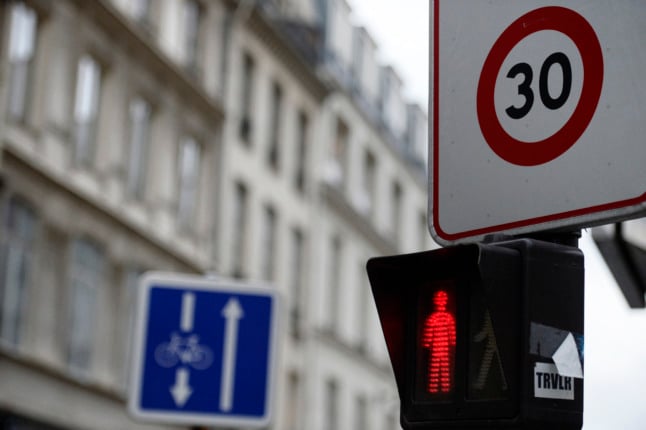Since August 2021, only the périphérique – the main ring road surrounding Paris – and major boulevards and arteries including the Champs-Elysées have allowed speeds above 30km/h (18mph).
On Wednesday, the administrative court of Paris validated the decision to cap speeds at 30km/h in the capital.
The court justified their decision by noting the reduction in serious and fatal accidents for pedestrians, as well as the fact that the drop in the speed limit was found to not increase air pollution.
The court’s decision has been met with support from Paris’ town hall. David Belliard, the deputy mayor of Paris who also has responsibility over transportation and roads, said that it was “excellent news” and praised the speed limit for having made the city safer and decreased noise.
Belliard also called on the government to police prefecture to deploy speed cameras in the capital.
An assesement conducted by the “Coyote application” found that the average speed in Paris has decreased by 1.8km/h since the introduction of the 30km/h speed limit.
Around 60 per cent of the capital’s streets were already subject to the speed limit before it was put in place. Mayor Anne Hidalgo, who took office in 2016, aided in reducing many other roads to single lanes or pedestrian-only zones. Many of the capital’s suburbs have also followed suit by imposing their own 30 km/h limit on residential streets.
Hidalgo had previously pledged to reduce the speed limit on the périphérique ring road to 50 km/h, but it has thus far remained at 70 km/h.



 Please whitelist us to continue reading.
Please whitelist us to continue reading.
and the price of Taxis will go up.